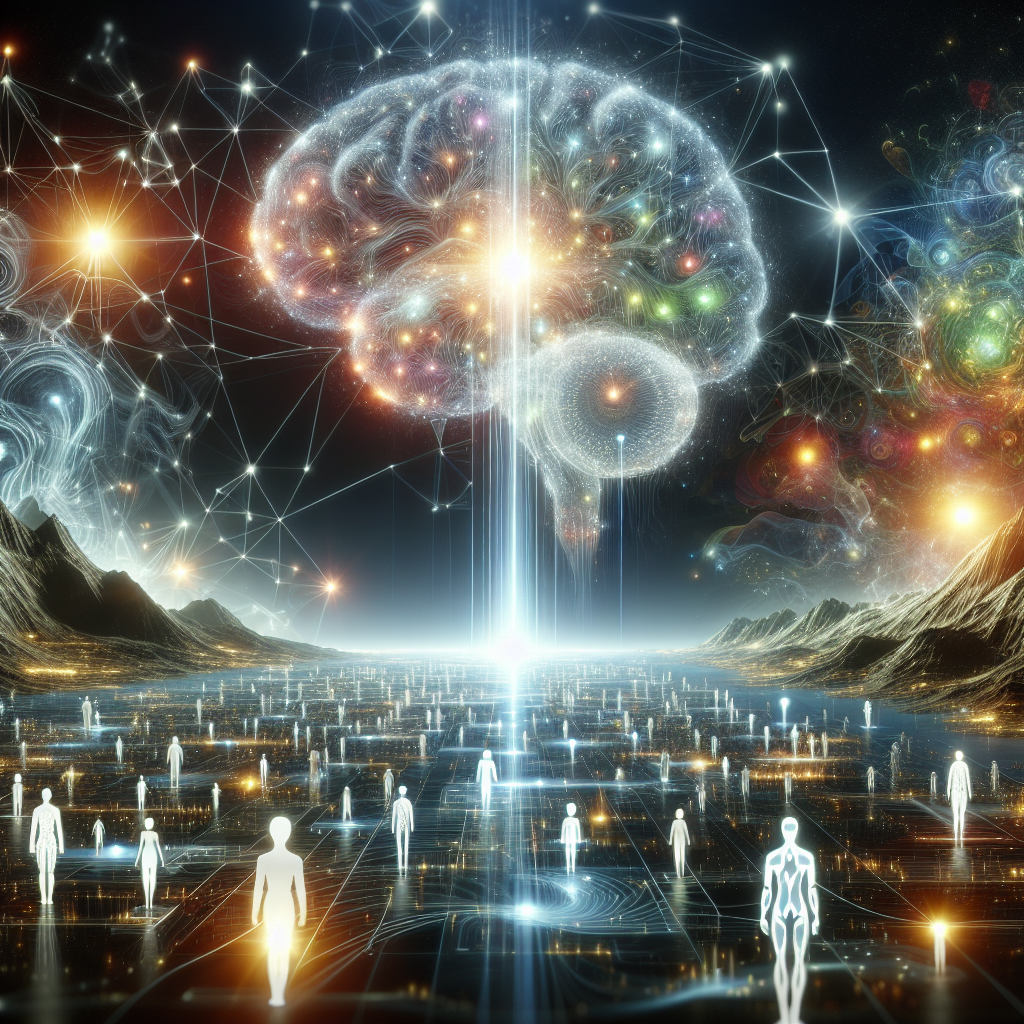Unleashing the Power of Artificial General Intelligence: A Game-Changer for Humanity
Introduction
Artificial Intelligence (AI) has made significant advancements in recent years, with applications ranging from self-driving cars to virtual assistants. However, most of these AI systems are designed for specific tasks and lack the ability to think and reason like a human. This is where Artificial General Intelligence (AGI) comes into play.
AGI refers to a form of AI that possesses human-like cognitive abilities, such as the ability to understand, learn, and adapt to new situations. While AGI is still in its early stages of development, experts believe that unlocking its full potential could revolutionize the way we live, work, and interact with technology.
In this article, we will explore the concept of AGI, its potential impact on society, and the challenges that come with unleashing its power.
What is Artificial General Intelligence?
Artificial General Intelligence, also known as Strong AI or Human-Level AI, refers to a type of AI that can perform any intellectual task that a human can. This includes tasks like understanding natural language, solving complex problems, and learning from experience. Unlike narrow AI systems, which are designed for specific tasks, AGI aims to replicate the cognitive abilities of the human brain.
While AGI is still a theoretical concept, researchers and developers are working towards creating AI systems that can exhibit human-like intelligence. This involves building algorithms that can generalize knowledge, reason abstractly, and adapt to new situations. Achieving AGI would mark a significant milestone in the field of AI and open up new possibilities for innovation and discovery.
Potential Impact of AGI on Society
The development of AGI has the potential to bring about major changes in various sectors, including healthcare, finance, transportation, and education. Here are some ways in which AGI could impact society:
1. Improved Efficiency: AGI systems have the potential to automate a wide range of tasks, leading to increased efficiency and productivity in various industries. For example, AGI-powered robots could perform complex manufacturing tasks with precision and speed, leading to cost savings and faster production times.
2. Enhanced Decision-Making: AGI systems have the ability to analyze vast amounts of data and make informed decisions in real-time. This could revolutionize fields like finance, where AGI algorithms could predict market trends and optimize investment strategies.
3. Personalized Healthcare: AGI-powered systems could revolutionize the healthcare industry by offering personalized treatment plans based on a patient’s genetic makeup and medical history. This could lead to more effective treatments and better outcomes for patients.
4. Autonomous Vehicles: AGI-powered self-driving cars could reduce accidents and traffic congestion by making split-second decisions based on real-time data. This could revolutionize the way we travel and make transportation safer and more efficient.
Challenges in Unleashing the Power of AGI
While the potential benefits of AGI are vast, there are also significant challenges that must be overcome before its full potential can be realized. Some of the key challenges include:
1. Ethical Concerns: AGI systems raise ethical concerns related to privacy, security, and bias. For example, AGI algorithms could be used to manipulate public opinion or infringe on individual rights if not properly regulated.
2. Unintended Consequences: AGI systems have the potential to disrupt existing industries and job markets, leading to unemployment and social unrest. It is essential to consider the long-term consequences of AGI deployment and develop strategies to mitigate any negative impacts.
3. Technical Limitations: Achieving AGI requires overcoming technical challenges related to algorithm design, data processing, and computational power. Researchers must continue to innovate and collaborate to develop AI systems that can truly mimic human intelligence.
FAQs
Q: What is the difference between AGI and narrow AI?
A: AGI refers to AI systems that possess human-like cognitive abilities, while narrow AI systems are designed for specific tasks. AGI aims to replicate the general intelligence of the human brain, while narrow AI focuses on solving specific problems within a limited domain.
Q: How close are we to achieving AGI?
A: While AGI is still a theoretical concept, researchers have made significant progress in developing AI systems that exhibit human-like intelligence. However, achieving true AGI is a complex and challenging task that will require continued research and innovation.
Q: What are the potential risks of AGI?
A: AGI systems raise concerns related to job displacement, privacy, security, and bias. It is essential to address these risks proactively and develop ethical guidelines for the responsible deployment of AGI.
Conclusion
Unleashing the power of Artificial General Intelligence has the potential to transform society in profound ways. From revolutionizing healthcare to enhancing decision-making in finance, AGI could usher in a new era of innovation and discovery. However, achieving AGI is not without its challenges, and it is essential to consider the ethical, social, and technical implications of this groundbreaking technology. By working together, researchers, policymakers, and industry leaders can harness the power of AGI for the benefit of humanity and ensure a brighter future for all.

